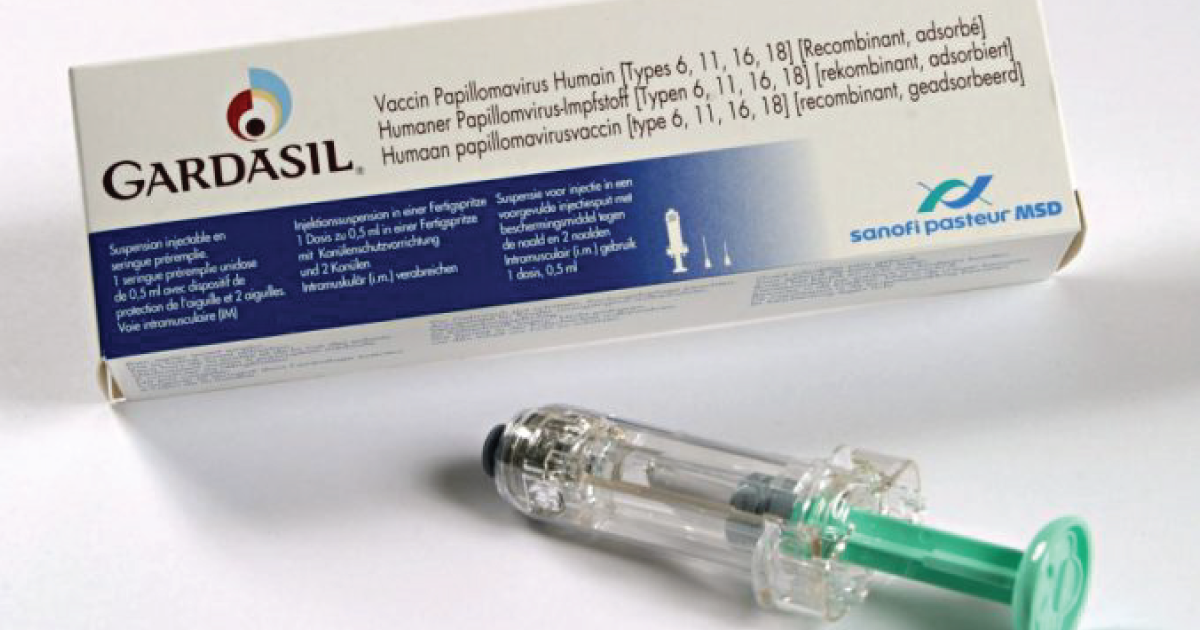
Shocking Flaws in Gardasil Trial Design Prevents Safety Assessment
To say that the HPV vaccine is controversial would be a serious understatement. A number of experts have spoken out against the vaccine since its release, and studies have revealed serious problems. Children and teenagers have died or been permanently disabled following HPV vaccination, yet it remains on the market.
September 29, 2018 | Source: Mercola.com | by Dr. Joseph Mercola
To say that the HPV vaccine is controversial would be a serious understatement. A number of experts have spoken out against the vaccine since its release, and studies have revealed serious problems. Children and teenagers have died or been permanently disabled following HPV vaccination, yet it remains on the market.
The featured 2017 trilogy, “Sacrificial Virgins,” looks at the HPV vaccine from a variety of angles. Part 1,1 “Not for the Greater Good,” questions the science behind the HPV vaccine and asks “Do we need it?”
Part 2,2 “Pain and Suffering,” tells the story of two severely HPV-injured girls in the U.K., highlighting the possibility that the aluminum adjuvant added to Gardasil and Cervarix may be causing the devastating neurological damage seen in young girls and boys.
The third episode,3 “A Penny for Your Pain,” looks at legal cases worldwide (in particular Japan, Spain and Colombia), in which victims are seeking compensation for their injuries.
Clinical Trial Participant Speaks Out Against Gardasil
In December 2017, Slate magazine published an article dishing out yet another inconvenient truth about this medically unnecessary vaccine, revealing trials “weren’t designed to properly assess safety.”4 Slate recounts the story of Kesia Lyng, a 30-year-old Danish woman who, at the age of 19, made the fateful decision to participate in a clinical trial for Merck’s Gardasil vaccine.
Gardasil is supposed to prevent human papillomavirus (HPV) infection, which in rare cases may cause cervical cancer if left untreated. “Lyng’s grandmother had died of cervical cancer the year before, so when a letter arrived offering her $500 to take part in a crucial international test of Gardasil, the decision was easy,” investigative journalist Frederik Joelving wrote in Slate.
“She got her first shot of the vaccine at Hvidovre Hospital in Copenhagen on September 19, 2002. The symptoms snuck up [sic] on her shortly after her second shot on November 14. They never abated. It wasn’t until 2016 that she received her diagnosis — chronic fatigue syndrome (CFS) …
In recent years, Lyng has become suspicious that there is a connection between her disease and her Gardasil immunization. Her ailments evoke descriptions found in hundreds of news stories from women who also received the vaccine, as well as several medical case reports from around the world.”
Poor Safety Design Has Jeopardized Health of Tens of Millions of Girls
As of March 2016, nearly 90 million doses of HPV vaccines had been distributed among boys and girls in the U.S.,5 and many have paid an extraordinarily high price, coming down with nervous system disorders, CSF and autoimmune diseases. Long-term, the ramifications of this vaccination campaign may turn out to be even more widespread, as trial data from Merck shows that Gardasil vaccinations may actually increase your risk of cervical cancer.6
According to Merck’s own research in one of its clinical trials, if you have been exposed to HPV strains 16 or 18 prior to vaccination, you may increase your risk of precancerous lesions caused by these two strains by 44.6 percent.
Reported side effects of Gardasil vaccination include immune-based inflammatory neurodegenerative disorders, suggesting something is causing the immune system to overreact in a detrimental way, sometimes fatally.7 Importantly, a 2012 systematic review8 of pre- and post-licensure trials of the HPV vaccine concluded that the vaccine’s effectiveness is both overstated and unproven. According to the authors, the review revealed:
“… evidence of selective reporting of results from clinical trials (i.e., exclusion of vaccine efficacy figures related to study subgroups in which efficacy might be lower or even negative from peer-reviewed publications). Given this, the widespread optimism regarding HPV vaccines long-term benefits appears to rest on a number of unproven assumptions (or such which are at odd with factual evidence) and significant misinterpretation of available data.
For example, the claim that HPV vaccination will result in approximately 70 percent reduction of cervical cancers is made despite the fact that the clinical trials data have not demonstrated to date that the vaccines have actually prevented a single case of cervical cancer (let alone cervical cancer death), nor that the current overly optimistic surrogate marker-based extrapolations are justified.
Likewise, the notion that HPV vaccines have an impressive safety profile is only supported by highly flawed design of safety trials and is contrary to accumulating evidence from vaccine safety surveillance databases and case reports which continue to link HPV vaccination to serious adverse outcomes (including death and permanent disabilities).”
https://www.youtube.com/watch?v=KAzcMHaBvLs
